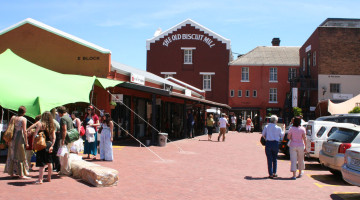Specs:
There are three common methods of obtaining a degree in Law:
4-year LLB
3-Year BA Law: This programme lays the foundation for advanced legal studies while simultaneously providing insight into human behaviour and social issues. It gives access to the LLB programme.
3-Year BCom Law: This programme is designed to give students the advantage of doing a BCom degree with the possibility of continuing on to do an LLB. The first year is a common first year with other BCom programmes, and the law courses only start in the second year, and that is only if you achieve an average of 60% for your first year courses, in one sitting. [Generally]
Description:
The Law Faculty is ultimately organized into three departments: Commercial Law, Public Law and Private Law. Each of these departments is responsible for course offerings and research within the department. In addition to this, each department hosts one or more specialized academic and research units. In a nutshell, Commercial Law deals with the Institute of Development and Labour Law and Shipping Law Unit, Private Law deals with the Intellectual Property Law and Policy Research Unit, Refugee Rights Project and Law Clinic and finally Public Law deals with Institute of Marine and Environmental Law, Law, Race and Gender Research Unit, The Democratic Governance and Rights unit and the Centre of Criminology. UCT also offers a range of other units, facilities and resources.
Student Opinions
Leko Jiyane, Third Year (LLB)
“The kind of people that should study law are people that are passionate about the law and people that actually enjoy reading and have a good attention span for the attention to detail that is required during hours and hours of long judgments.”
“My timetable this year (third-year) was exhausting. Monday to Thursday I ended at 6pm and Monday to Wednesday I started at 8am. Fridays, however, were free which was awesome.”
Stefanie Busch
“Thought all the horror stories regarding the warzone that supposedly is ‘law school’ must clearly be an exaggeration? Well, I did when I first decided to apply to UCT’s law school. Oh boy, how I was wrong!
During the past two years I’ve been at UCT’s law school I’ve witnessed many of the nightmares other law students had so despairingly tried to warn me about. Course readers that set out how many hours one ought to read (in case you’re wondering, 55 hours for one course per semester!), third year law students pulling actual all-nighters in the 24 hour computer lab and taking half an hour naps under desks, and, most shockingly, when getting a 50% feels like pure heaven.
Yet, besides the scary stuff, UCT’s law school is highly renowned and a privilege to attend. This is especially because of its highly regarded lecturers, such as Pierre De Vos – who’s basically quoted in every news article concerning constitutional law – or Richard Calland – who recently even featured in a Zapiro cartoon.
Three different streams are offered by UCT – the 4-year LLB programme (a.k.a. the brave students jumping straight from high school to the warzone that is the law), postgraduate studies and the combined BA LLB programme. I’m in the latter stream, which is the very reason I applied to UCT. This programme kept me from having to choose between my two passions (being the law and journalism), whereby it allowed me to attend law school whilst completing my BA degree in media.
Thus, although law school is one of the hardest things I have ever had to do – and I still have two frightening years ahead of me – it has also been the most amazing time of my life because I got to study about something I love. The thing is, when you are passionate about the law, one puts up with all the craziness, even though it might be exhausting and horrific at times. Therefore, – if you are still reading this – I hope you have not been scared off yet either – that being the first step to becoming a real law student.”








Leave a reply